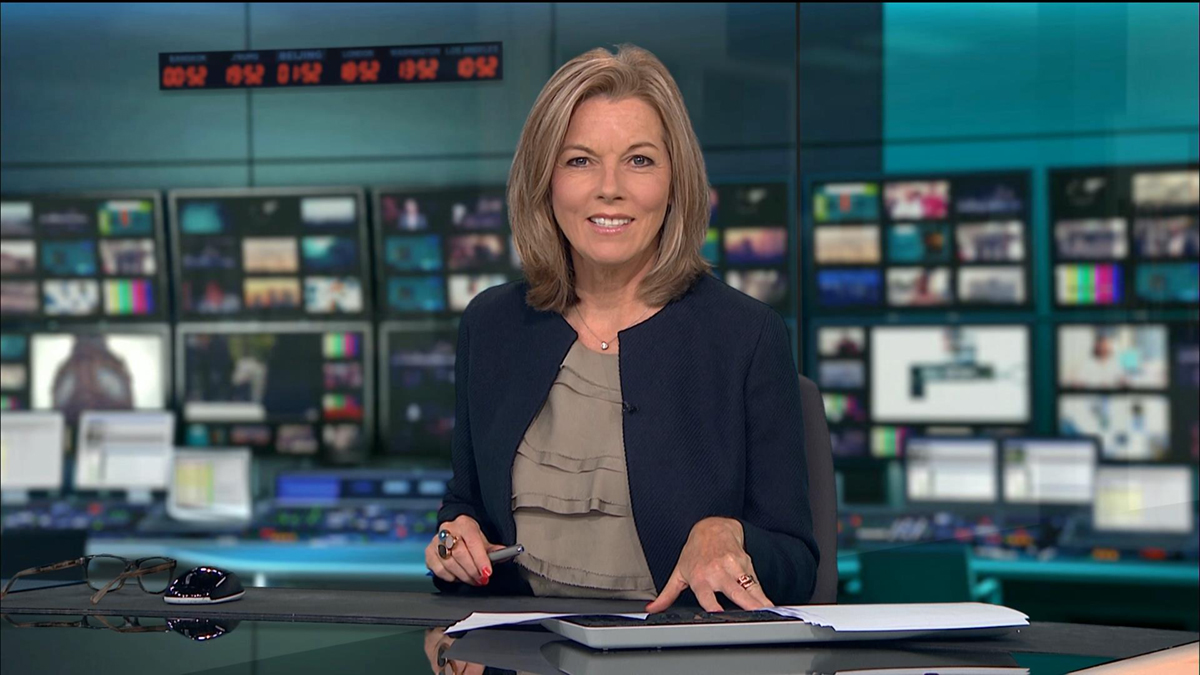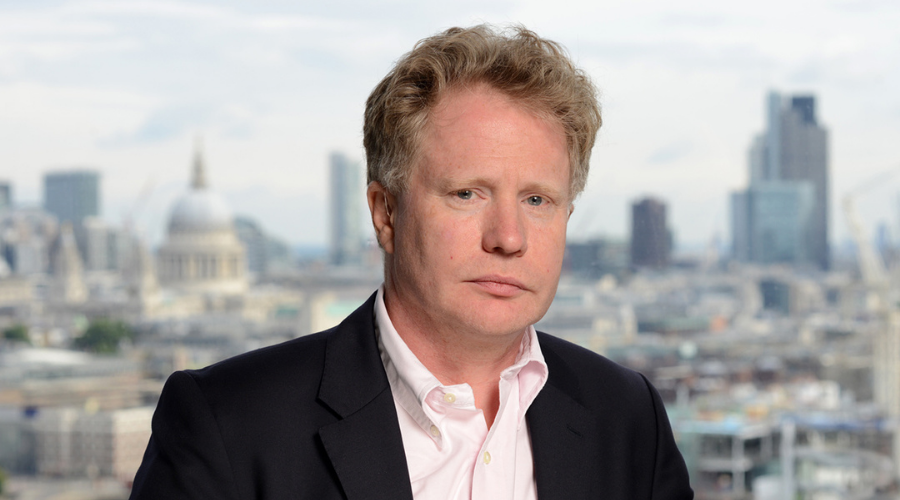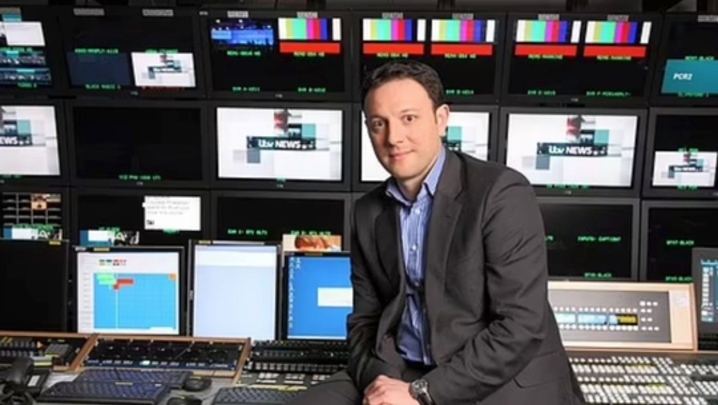ITV News chief Michael Jermey speaks to Steve Clarke as ITV launches its expanded early-evening news.
If you want to hear a convincing argument that traditional TV news remains in rude health, despite the onward march of digital services, speak to Michael Jermey, ITV’s director of news and current affairs. He is the executive overseeing the launch of ITV’s extended, hour-long early evening news.
Many insist that the exit of newsmen such as Jon Snow, Andrew Marr and Adam Boulton, who have recently quit, respectively, Channel 4 News, BBC TV and Sky, and not forgetting Emily Maitlis and Jon Sopel’s surprise move to LBC, is proof that broadcast news is in terminal decline.
Not Jermey, a news veteran of almost four decades, whose entire career has been spent either at ITN or ITV News in one form or another. “I think there’s been a narrative that’s largely inaccurate about bulletin programmes on the big channels,” says the softly spoken news boss. “ITV Evening News has more viewers, not just more share, than it did five years ago.” Today, about 3.5 million viewers tune in five evenings a week.
He recalls that, in the early 1990s, when some of the day’s leading news anchors – Alastair Burnet and Sandy Gall, for example – abandoned the autocue, commentators said much the same thing as they are saying today, when so many get their news via social media.
“At the time, people were saying, ‘This is the end of TV news as we know it’, but TV news continues to evolve,” Jermey insists. “There is something about television news that… digital media and newspapers can’t do – [it has] the ability to come into people’s homes and provide eyewitness reporting from locations and communicate it in a way that feels accessible and, in the case of our programmes, feels warm and very human.
“People react very well to that, which doesn’t mean that people don’t want to read news or see a bit of video on their phone or, indeed, read newspapers.
“Lots of people do all those things. But, in the same way that people predicted the end of cinema and the end of radio, predictions of the demise of television news are, to misquote Mark Twain, greatly premature.”
Jermey, relaxed and immaculately suited and booted, is speaking at a largely deserted ITV HQ in Holborn, central London (staff are still working from home), three weeks before the debut of the expanded early evening programme on 7 March.

The move is part of a larger change to the scheduling, which ITV describes as the biggest in two decades. It sees Emmerdale moving to a later, 7:30pm, slot and Coronation Street following at 8:00pm, with hour-long episodes on Mondays, Wednesdays and Fridays.
The early evening news might be doubling its length and featuring more out-of-London stories but viewers will otherwise see no significant differences to the current 30-minute programme.
Mary Nightingale, having presented the ITV Evening News since 2001, remains on board to front the extended broadcast. The studio and set remain identical.
“It’s building on what we do well,” explains Jermey. “I think we are the least metropolitan of the big news services and this will emphasise that.” He rules out more analysis or longer reports – or turning the programme into a soft magazine show. In other words, why rewrite a hit?
He says: “It’s going to take the essence of the 6:30 news, which is rapid-paced news of the day nationally and internationally and build on it by offering viewers a few more stories and more news from outside London.
“To use the analogy of a newspaper, if, at the moment, the programme is pages one and two, the extra half an hour is pages three and four.”
ITV News’s journalistic presence is being beefed up in Wales, Scotland and the north of England, with more correspondents. Overall, 27 new members of staff are being hired across editorial, production and technical areas.
“Our early evening news is the most watched commercial TV news programme in Britain and sits very comfortably alongside our strong regional news programmes.
“Far from it being in decline, we think it’s a successful product. This is the thinking behind offering viewers an hour-long show,” emphasises Jermey, who began his career in Central Television’s Birmingham newsroom in 1985. He joined ITN as a trainee a year later.
His parents were teachers, but Jermey got the journalism bug early on. He still remembers the effect on him as a teenager of seeing a young Jon Snow reporting the tragedy of the Vietnamese boat people for News at Ten. “I’ve always been fascinated by eyewitness reporting, which is something that is unique to television news,” he says. At Oxford, he edited the university newspaper Cherwell, following Evan Davis and preceding Robert Moore as editor.
More than four decades later, ITV News’s determination to put eyewitness reporting at the heart of its bulletins was one reason it dominated this year’s RTS Television Journalism Awards. The remarkable storming of the Capitol coverage collected four prizes out of ITV’s total of nine.
This was a notable achievement by any yardstick. ITV News at Ten was declared Network Daily News Programme of the Year, a reflection of the fact that many consider it the go-to late-evening newscast in preference to BBC News at Ten. Of late, it’s won widespread praise for a succession of Partygate scoops and frequent exposés, including its reports on the appalling state of social housing in the UK.
What, then, is ITV News’s secret sauce? Part of it stems from a culture that allows editorial teams a high degree of autonomy. “We’re happy to encourage the individuality of the people who work for ITV News and, in lots of cases, their independence of decision-making,” says Jermey. “Robert Moore is a case in point. He’s a highly experienced correspondent who made a set of very sensible judgements on 6 January last year that led to a world- beating exclusive and to coverage that no US, British or European network could match. That happens within an enabling context from a broadcaster.”
How, then, would he define ITV News’s style? “We’re as authoritative as anyone else in the market and as impartial, if not more so, than any other service you can find.
“But we’re also very much peer-to-peer broadcasters. We think of our viewers as highly intelligent people who want more information from us, and they want it put across in an accessible and interesting way.
“ITV News has always put people at the heart of our broadcasting. If you go back decades, the mark of news on ITV has always been people-centred stories, which is what we’re still doing today. Our newscasters make a connection with people.”
Tom Bradby’s style is particularly distinctive. I suggest that he wears his heart on his sleeve in a way that no other British newscaster does. “That’s probably a fair description but he’s politically impartial and doesn’t give favour to one side or another in a controversy. However, he does sometimes react how viewers do to extraordinary events. Quite a lot of our viewers like the honesty of that.”
As do, it seems, Jermey’s peers, judging by ITV News’s success at the RTS Television Journalism Awards. The betting is that the expanded early evening news will boost ITV News’s credibility in a period when the value of informed, impartial public service news has never been greater.



